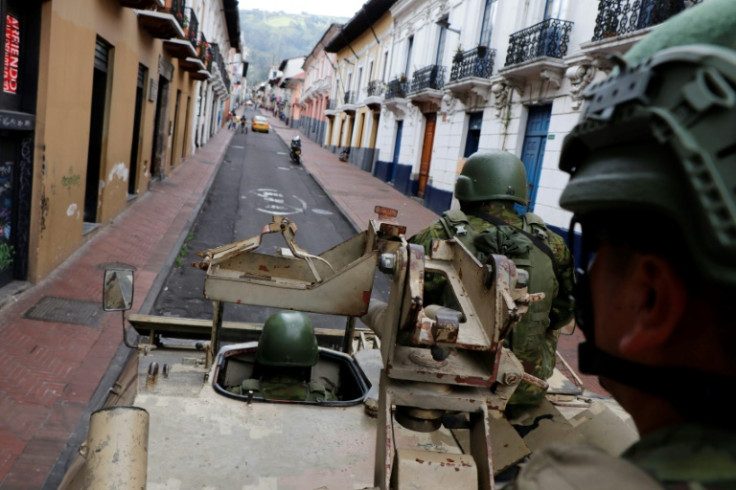
Ecuadorian authorities continue with their war on the country's criminal organizations, some two weeks after violence erupted following the takeover of several prisons, a university and a TV station that was broadcasting live.
On Sunday, security forces arrested 68 people who had attempted to take over a hospital in the country's southwest. And while the overall levels of violence seem to have lowered from their peak, a new report by InSight Crime argues that this might be a lull and that the country's criminal organizations can pose a "formidable challenge to the country's weak institutions."
The specialized outlet claims that the numerous gangs operating in the country "have significant territorial presence" and a "diversity of funding streams," as well as the fact that they operate "beyond traditional criminal hotspots."
When it comes to the first aspect, the report indicates that "the combination of transnational cocaine trafficking and retail drug sales within" the country is still their primary source of income, but other ones are proliferating as well, among them human smuggling human trafficking and extortion.
Highlighting the extent of the drug trade in the region, authorities in both Colombia and Ecuador announced over the weekend that they had intercepted two semi-submersible vessels loaded with tons of drugs in their respective Pacific waters.
In contrast, Ecuador's finances are stretched thin, with the country's Economy minister estimating that maintaining the operation will require "over $1 billion which Ecuador does not have." "The country's short-term fiscal situation is unsustainable," the ministry wrote in an official statement released on January 15.
Another aspect of the conflict is the fact that 22 groups have been deemed "terrorist organizations" by the Daniel Noboa administration means that the criminal landscape has fragmented, with new ones splitting from larger ones amid a dynamic scenario.
The fighting among the groups can become a determinant factor in the future of the situation, as they seek more profits, economies and territory. "While they seem to have united against the government during the escalation of violence over the last week, these alliances may be temporary," the report says.
This scenario can make the government's goal more difficult, as weakening a gang could make room for the emergence of another one, rather than advancing its overall goals.
The report casts doubt on whether president Noboa has an exit strategy for this conflict, with mounting evidence that it will become a protracted one. "It should not become a habit — it should be a short-term intervention with specific goals," a Ministry of Defense official speaking in a personal capacity told InSight Crime.
The United States announced Sunday that a delegation would visit Ecuador to "consider options to accelerate bilateral security cooperation and discuss collaborative approaches to confront the threats posed by transnational criminal organizations."
The delegation will meet from Monday to Thursday with Noboa, other top officials and "representatives of civil society at the forefront of the fight against corruption," a statement by the US embassy in Ecuador said.
It said Chris Dodd, the special presidential advisor for the Americas, will lead the delegation, which will also include the top US general for the Latin America region, Laura Richardson.
© 2025 Latin Times. All rights reserved. Do not reproduce without permission.






